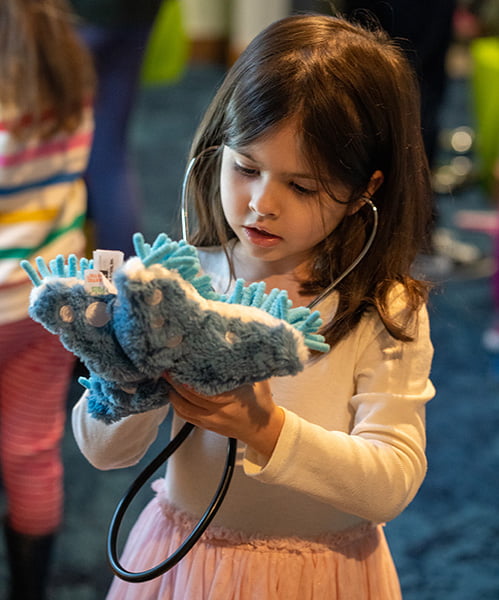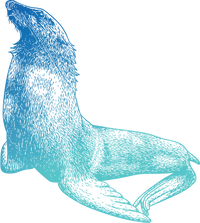Looking for something new and fun to do with young kids on a wet and dreary winter day? Come discover Caring Cove, an open play space where kids can deepen their connections to marine animals and their habitats by play-acting a variety of animal care activities.
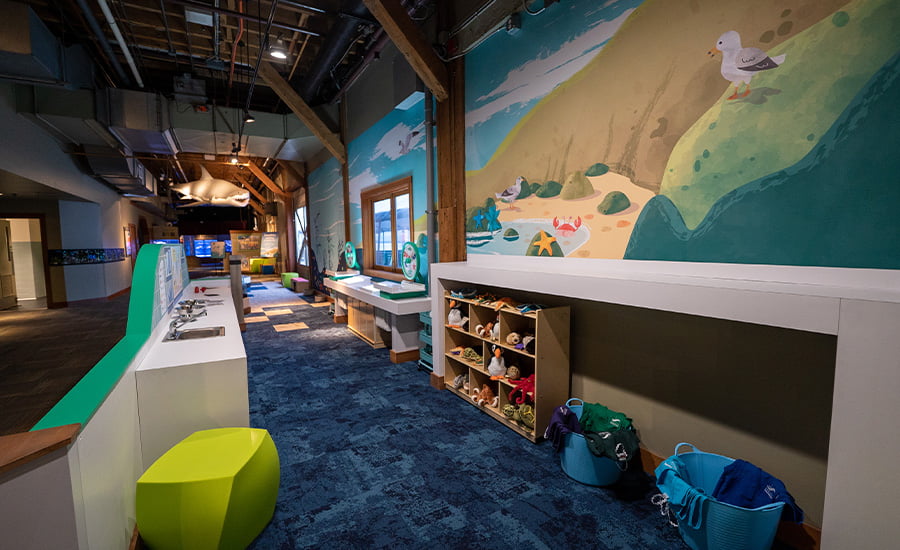
Looking for something new and fun to do with young kids on a wet and dreary winter day? Come discover Caring Cove, an open play space where kids can deepen their connections to marine animals and their habitats by play-acting a variety of animal care activities.
Caring Cove, which opened on January 15, features six different areas—many stocked with toy instruments based on the equipment used by our animal care staff—that encourage and support imaginative play for toddlers through children ages 8–10:
- A costume/animal area where kids can dress up as an Aquarium staff member and choose a plush octopus, sea star, sea otter, tufted puffin, sea turtle or rockfish to borrow and care for.
- An exam station where kids can weigh their animal, examine it using our toy x-ray machine and do a routine checkup to ensure the animal is in tip-top shape.
- A feeding and enrichment station, where kids can prepare a pretend meal and design an activity for the animal to learn and play—known as enrichment in the world of animal care—or use a variety of tools to help keep their animal’s home clean.
- A holding habitat, where the animal can rest, play, eat or interact with other animals or kids.
- A felt wall, where kids can design an underwater ecosystem or animal home using our colorful felt pieces.
- An artificial tide pool area for kids to practice looking closely, touching gently and exploring carefully—just as we encourage them to do in our touch pool habitat and on local beaches. Colorful, tactile, filled with faux sea creatures and just 14” high, this area is ideal for our youngest guests, who aren’t quite tall enough (or ready) to explore our touch pools.
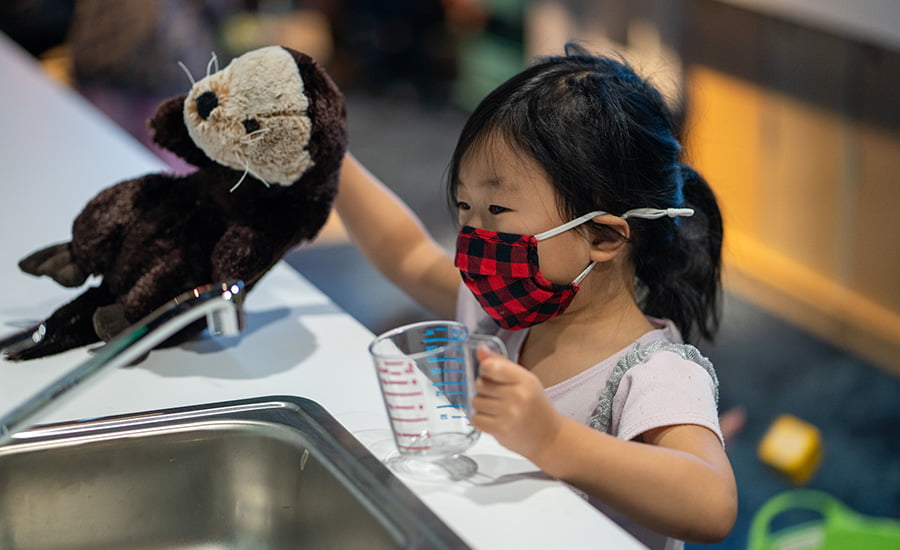
Caring Cove also features a reading area stocked with children’s books for parents and caregivers to read aloud or for kids to page through on their own; and benches for reading or resting while the kids play.
Whether kids pretend to be an aquarist, an animal care specialist, a veterinarian, a diver, an interpreter or a role they create with their own imagination, they’re sure to have a wonderful time. Parents and caregivers too! “The whole area is for families,” says Interpretation Coordinator and Scientific Diver Nicole Killebrew, who served as the project manager for Caring Cove.
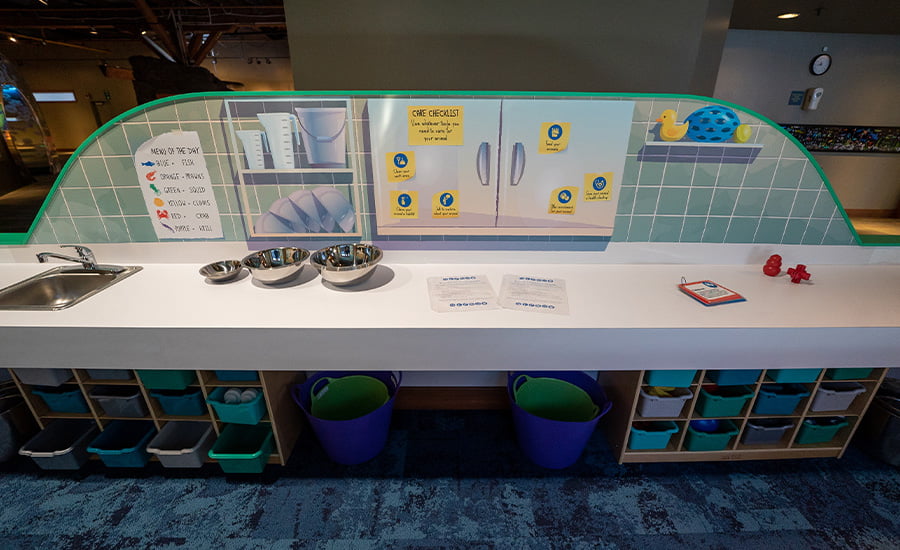
The role of empathy in conservation action
The vision for Caring Cove began with a desire for an early childhood play space to support our empathy work, which is funded through a grant from an anonymous donor. Empathy is defined as the ability to understand and share the feelings of another—and research has shown that empathy for animals, particularly in children, can help spur conservation action on the animals’ behalf. “The interconnectedness between empathy and conservation action is inextricable,” says Nicole. “And now we have an imaginative play space where young kids can connect to marine animals that they may not even know are living things—like a sea star—and understand that they have the same needs for food, a home, nurturing and care,” she adds. “We’ve never had anything like it.”
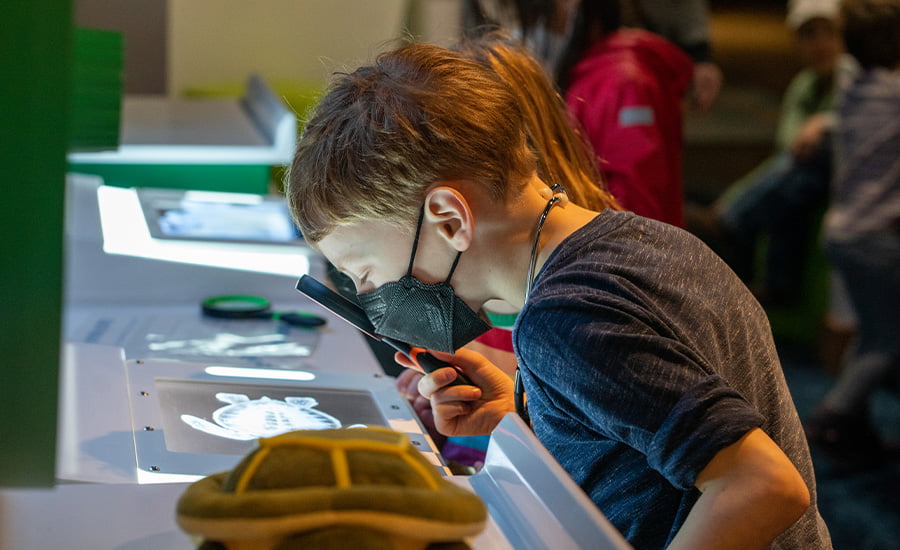
Special and immense thanks go to local business Dillon Works, who designed and fabricated Caring Cove; the Advancing Conservation through Empathy for Wildlife Network, which provided critical project funding; the anonymous donor who funds our empathy grant; and the dozens upon dozens of Aquarium staff members who contributed their time and expertise to the project. “It was truly an Aquarium-wide effort,” smiles Nicole.
